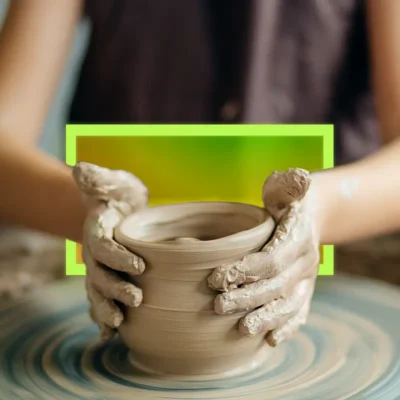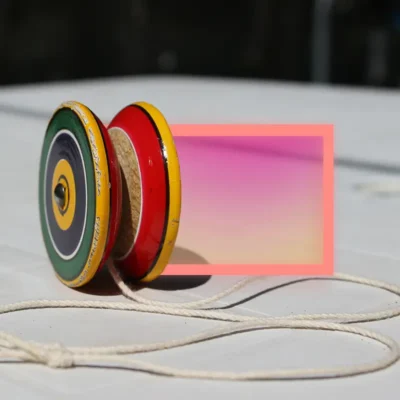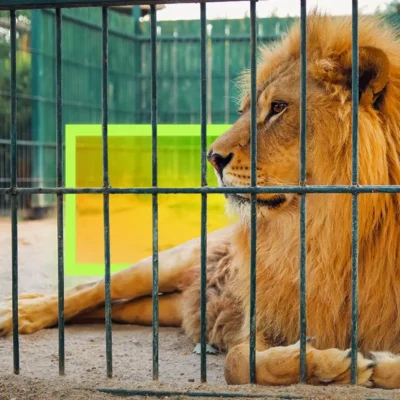Move forward without moving on
When Kelly Rizzo’s husband Bob Saget passes away without warning, she’s faced with the challenge of moving forward day by day without leaving her memories of Bob behind. As she processes her grief, Kelly reflects on the way her father left his home country and never returned, but realizes that his memories of that place will always be a part of him. Now she must find a way to honor her own memories even as her life moves forward.
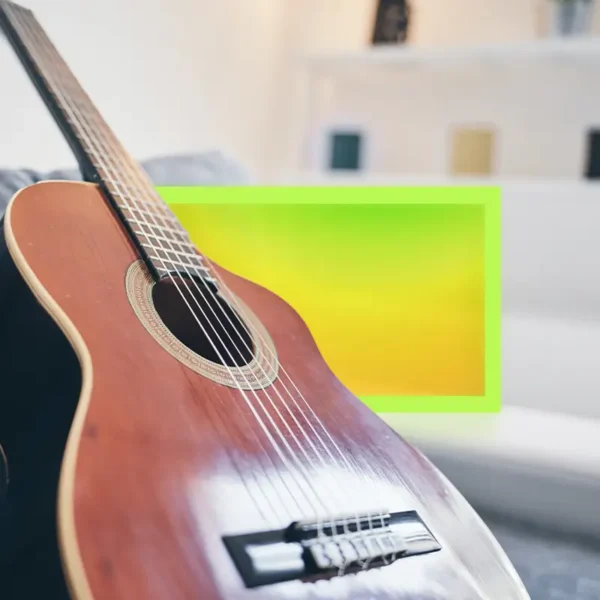
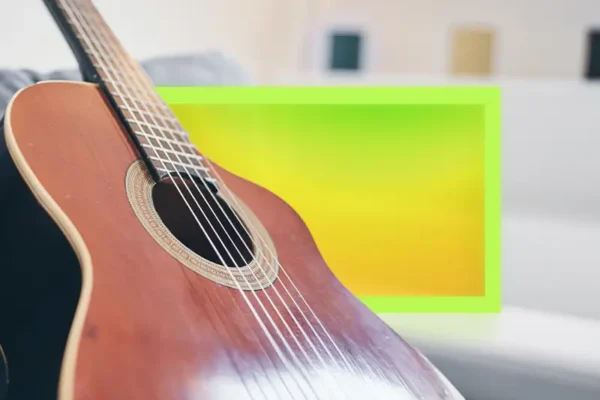
Table of Contents:
Transcript:
Move forward without moving on
ROHAN GUNATILLAKE: Grief is a force that everyone will encounter, because loss is a natural part of life, but there are times when grief hits without warning. In today’s episode, we have a story from Kelly Rizzo about the unexpected loss of her husband, beloved actor Bob Saget (SAG it). Kelly shares with us how, in the wake of Bob’s passing, she faces the challenge of honoring her memories of him while moving forward, and how she learns that moving forward doesn’t mean moving on.
The body relaxed. The body breathing. Your senses open, your mind open, meeting the world.
KELLY RIZZO: I stand on an old stone street looking out over a European mountain town. It’s exactly as I pictured it: old Baroque buildings, iron balconies that look out over narrow cobblestone streets. I breathe in the rich Mediterranean summer air.
It’s hot in Italy. In the nineties. But I don’t care. I’m just so excited to finally be here, in Sicily, for my first time. I’m 36 years old.
I walk leisurely around my father’s hometown of Ciminna. My younger cousin Marco is full of laughter and smiles as he shows me around. He’s very Sicilian looking, dark mustache, goatee. He’s wearing a navy blue Lacoste t-shirt, gray cargo shorts, and bright white sneakers. He excitedly tells me, “Sicily looks almost the same today as it did in the fifties when your father left.” He points out the 800-year-old church on the left and beams with pride. “This is how it’s looked for centuries,” he tells me.
I follow him down the narrow street, admiring the beautiful architecture, taking it all in. I can feel the history here, like the heat on my skin. Even though I’ve never been here before, I’m very connected to this place. This is where my roots are, where my family’s from.
My father was born in this town. His parents moved to Chicago in 1955. Sicily was always this magical, mystical place I would hear about when I was little. He’s told me so many stories of how he’d play on the mountain as a child and walk these very same winding roads.
Seeing something in reality I’ve been dreaming of my entire life — it’s eye-opening. I’m blown away. I had gotten to a point where this trip felt mandatory, like I couldn’t take the fact that I’d never been, and now the reality of this place is exceeding my expectations.
Further up the hill, Marco shows me the fountain where my father, as a boy, would retrieve water for his family, back when there was no plumbing here.
I smile to myself. I think about how often my dad told me about fetching water. When I was a kid, if I ever complained about what he served my sisters and me for breakfast, he’d be like, really? Do you have to milk your own goat every day for breakfast? I’d laugh as he lit up with affection, nostalgia, and…love.
As I walk with Marco, I feel my dad’s presence around every corner.
I don’t really understand why, but my dad hasn’t been back here since he left almost 70 years ago. It’s unlikely he’ll ever come back. I can’t see any real reason why he shouldn’t come. He’s healthy and capable. But he dodges my questions or gives excuses. I’ve asked myself a lot why he would just move on from his hometown. Why would he never come back? Now, being here surrounded by this incredible beauty, I just can’t fathom it.
Out of the corner of my eye, I spot a majestic tree off to the side of the road. Hanging from its branches are huge figs, the size of grapefruits! I stop in my tracks and turn to Marco. “Oh my god,” I say, “My dad always talks about how much better figs are here, how you can pick fruit right from the tree.”
Marco’s face lights up. “Do you want one?” he asks me. I feel like a little kid. “Are we allowed to?” I ask. Marco laughs.
The two of us climb a little fence to get to the tree. I reach up through the branches and pick my first Sicilian fig. It’s heavy. The skin of the fruit feels smooth in my palm. I take a bite.
“It’s so sweet!” I grin at Marco with a mouthful of fruit.
In this moment, I realize, oh my God, I am here actually experiencing what my dad would talk about my whole life. And I wish he was here too. How could he not want to come here? How could he have just let go of his past and move on?
I sit on the floor of my husband’s office in the Los Angeles home we used to share. Soft afternoon light pours through the windows. It’s winter in January, and I’m 42 years old. It’s only been a few weeks since my husband passed away unexpectedly. We’d been together for six years. I never thought I’d be here, now, without Bob.
The weeks after his sudden passing have been brutal. Gut-wrenching. It was completely disorienting, how in the blink of an eye, my life was turned upside down. My sister has been staying with me, sleeping in my bed with me every night because I can’t sleep alone.
In my hand, I hold a beautiful Sicilian ceramic tile that Bob and I bought on our honeymoon three years ago. It has a signature Sicilian design painted in deep red, rich yellow, and pale blue. The ceramic is smooth and cool to the touch. Holding it makes me think about how special it was to go to Ciminna with Bob, to show him the town of my family’s origins. I remember driving through that tiny town in the red SUV Bob insisted on renting. Bob was freaking out trying to drive the too-big car down any of the narrow streets. I laugh to myself at the memory. Sicily feels so far away now.
I breathe deeply, and gently place the tile down next to me. It’s just one of many special objects I’ve been finding as I go through Bob’s things.
His office is still the way he left it. Being in here without him feels very weird. He was just here a few weeks ago, and then he left to go on his stand-up tour and never came home.
I look around at all the objects on Bob’s desk, and on the shelves. His large wooden desk is covered in items and memorabilia that were so important to him. Trophies, plaques, photos of his daughters, trinkets that belonged to his parents, and artifacts of his long and illustrious career. I have to go through all of his stuff, decide what to keep, what not to keep. And there’s a lot to go through. Before I moved in, this was Bob’s house for 20 years. It was his pride and joy, and he decorated it the way he liked. But now, I have to move. We have to sell the house.
How am I going to get through this?
I feel Bob in every corner of this house: the couch where we’d watch TV together, the dining table where we’d share meals with his daughters, the kitchen with its huge island and stone flooring. I don’t like to be in the kitchen. That’s where I was when I first learned the news that Bob was gone.
I keep having flashbacks of getting that call, when I collapsed on the floor.
When I walk through the house, I see pictures of Bob everywhere. I don’t want to leave him, move on from him, but I don’t have a choice, this house is being sold.
I just feel so horrible about it. I keep trying to remind myself that he wouldn’t be mad about this. It’s like I’m bargaining with myself…over these feelings of guilt, and this feeling that I’m deserting him by moving.
When my father left Italy, he didn’t have a choice in leaving. He was a child, and his family had decided to move to the U.S. But he has made the choice to never come back. He, in a sense, deserted the place he used to call home, which was once so important to him.
That’s the last thing I want to do. I don’t want to abandon Bob. I don’t want to move on.
GUNATILLAKE: Moving on. One moment becoming another. One breath, becoming the next. Distinct, but connected.
RIZZO: It’s the early evening, and I sit on the big brown couch in the living room with Bob’s daughters next to me. The spacious room feels even more empty now that Bob isn’t here with us. He always filled the space with his massive presence.
Bob’s daughters and I are waiting for his dear. In the weeks and months after losing Bob, John has gone above and beyond to help me.
These last few weeks have been a whirlwind. Going through everything. Packing. Getting ready to move. So many people in my life have been doing everything they can. Bob’s daughters and their friends have been over to help. But there’s all this stuff. And some of it I just have to handle myself. As I go through the house I find letters. Beautiful memorabilia. The more I discover, the more I feel like I’m reliving his whole life.
John arrives. I manage a small smile, and welcome him inside. We all hug tight. In the midst of how horrible this all is, this is the one thing I get excited about: when I know a friend is coming over to the house so I can give them something of Bob’s. Even though it’s sad and gut wrenching, it’s the only thing right now that brings me joy.
John and I make our way over to sit down on the couch. We check in. We catch up.Then I say, “I have something for you.” I reach over to carefully, gently lift up a bulky item.
“This is Bob’s guitar,” I say, and I hand it over to John. It’s a Taylor, Bob’s favorite.
John is silent. He takes the precious gift. I can tell he’s completely blown away. “This is the guitar Bob played at his last show ever,” I tell him, “from the night before he passed.”
John nods in astonishment. He’s an incredible guitarist himself, and I know he’ll take good care of the instrument. After a moment, he tells me, “This is now my most prized possession. I’ll have this hanging on my wall. My kids will see this one day.”
Tears start to stream down John’s face. I can’t stop my tears either as I watch him look over the guitar with such care. I see how happy he is. Even in the midst of so much sadness and loss and pain, we still have these moments of beauty and love. I feel deep gratitude for these moments. Gratitude has been keeping me afloat.
As I part with some of Bob’s belongings and share them with people he loved, letting them know Bob loved them, I may be in the midst of the darkest part of grief, but I, slowly, take my very first steps forward.
It’s quiet tonight. I’m home alone. I stand in the hallway to my bedroom and stare at the wall in front of me, which is covered in framed photos. Most of them are of Bob.
It’s been about a year since I moved out of the house I shared with Bob into this rental. It won’t be my permanent home, but I like living here for now.
When I first moved in, I put his stuff and pictures everywhere. I almost turned this place into another version of his house. It just made me feel better at the time, like I couldn’t have been abandoning Bob because I brought him with me so noticeably.
Some of his best friends were over tonight, and they said to me, “Wow, there are a lot of pictures of Bob up.” I’m in a place now where I can listen to their rr. After they leave, I’m left wondering, is it time to reconsider my home decor a little? Could it be time to put a couple of the many, many Bob photos away?
When I think about actually taking those steps, I feel a deep, penetrating…guilt.. I want to keep him present, because he’s always going to be important to me, but I don’t want to feel like I’m living in a Bob Museum.
I reach for one of the photos in front of me and slowly lift it off the wall. It’s a photo of us at Disneyland, a place he loved so much and was so happy to take me for my first experience. He went above and beyond to make sure my first Disneyland trip was memorable. I’ll always remember that day. Looking at the photo, I think it might be okay to put this one away.
I open a nearby drawer and gently lower the photo in. It’s a small step, but it feels huge. Just because this one photo is being put away doesn’t mean my memories with Bob, or my connection to him, are going anywhere.
I pause. How lucky am I that I got to be with this person for the time that I was, for six years? In each moment of doubt and difficulty, gratitude continues to be my life raft.
I slowly slide the drawer shut.
Through all of this, over time, I start to figure out the way to move forward. Never moving on, but moving forward.
GUNATILLAKE: Moving forward. Anchored in her husband’s memory, but without it defining each moment. For the rest of the story, let’s anchor our attention in the body and just let whatever happens next happen.
RIZZO: I walk down the winding streets of Ciminna, Sicily. I’ve returned to my dad’s hometown once more, this time with my sisters. We make our way over the cobblestones together. I look up and see that the sunlit panorama of the old stone ruins and green mountain cliffs is just as vibrant and beautiful as ever.
“I told you the produce is better there!” says my dad as I point out the giant figs on a nearby tree. My dad’s beaming face fills my phone screen. He’s on Facetime with my sisters and me. He’s guiding the three of us through the neighborhood. I hold up the phone so he can see our surroundings, and he smiles. This is the next best thing to him being here.
I’ve come to Sicily five times now, and every time I come, I always call my dad. He remembers exactly where everything is from when he was seven years old, and he loves to show us how much he still knows.
“Go around the next corner,” he tells us. “Do you see that house with the blue door. That was your aunt’s house.” “Wow, really?” we say. “And that third house on the right? Do you see that house, Kelly?” I tell him I do. “That’s where your grandmother lived,” he says.
“Wow, Dad. How do you remember all this?” I ask him. “I just do,” he laughs, and we keep going. All these years after he moved away, he still has these memories that he can share with us.
As my dad continues with his tour, I realize that over all these years, he’s been doing something that I’ve started doing myself. He has moved forward to make his home in America, without abandoning the joy and memories from the home he left behind. Even if he hasn’t returned to Sicily in person, his hometown continues to be part of him. It will always be.
I look around at the ancient and winding pathways, lined by stone houses and churches. Bob and my dad both walked these streets—Bob on our honeymoon, and my dad as a young boy. Being here, I’m so grateful to feel connected to both of them.
“Now, make a right.” my dad says through the phone, his voice full of excitement. I can tell that he loves that he can be a part of our trip here.
We stop as he gasps in excitement and says, “Do you see it right there? That’s it!” We’re directly in front of his childhood home. It’s 500 years old, and still standing. “I do dad.” I say. “I see it.”
My dad’s never forgotten his memories of his home. And he’s connected to this place through me and my sisters, too. We come here, and he can vicariously be here through us. I think about all the people in my life who now have Bob’s belongings, and who share memories of him. We all connect each other to the people and places that will always be important to us.
Change is a constant part of life. We will find our own ways to move forward when our worlds shift.
As we learn to take those first few steps, we have to recognize that moving forward doesn’t mean abandoning what we hold dear. We’ll always carry the people and places that have touched our lives, giving us the opportunity to move forward without ever having to fear that we’ve moved on.
Rohan’s closing meditation
GUNATILLAKE: Kelly, thank you.
Kelly’s story has me wondering whether we ever let anything go? Or does everything that we experience in life have some sort of echo.
The more I reflect on this, the more I think it’s about where and how we relate to the big things. Do we push them away? Do we deny them? Do we ignore them, or let them dominate all our thoughts? And importantly there is always the option to hold them lightly, connected with things while still being able to be fluid.
That’s the idea I’d like us to explore in our meditation together.
And we’ll do this by playing with what I like to think of as our two modes of attention: background attention and foreground attention.
Try if you can, to notice what your body as a whole feels like.
Not making anything of any particular part.
Instead letting the awareness be soft and steady, holding the overall body in its embrace.
You might be aware of the whole body breathing, or just the body by itself.
As we do this, we are putting the felt sense of the whole body in the foreground of our attention.
Noticing what this feels like.
Now we’re going to slightly switch things up.
Still aware of the body as a whole, but instead of the body being in the foreground we drop it into the background and now just open up, tuning into how any thoughts and any sounds come and go.
Our mind anchored in the body, but open to sounds and to thoughts.
I sometimes think of this technique as being like sitting on a bench in the park, watching the world go by.
The bench supporting us is our sense of the body, and it grounds us as we watch thoughts and sounds and whatever other experiences arise.
Importantly, we’re still connected to the background and we always know it’s there, we’re not moving on from it, we can’t.
It’s part of our frame of reference as life goes on.
As perhaps, Kelly’s memories of her husband and her connection to him is to her.
In that, background isn’t really the right word.
It’s part of her being that she operates from.
Beyond the binary of moving on or not moving on, it’s just not like that is it.
For the years they were together, Bob was of course very much in the foreground of Kelly’s life and in time after his death Kelly has learned what it’s like for Bob to be in the background.
We can pay attention to the present and the future while always connected to that which has gone before.
Not two. But not one either. Just love.
Thank you, Kelly.
And thank you.
We’d love to hear your personal reflections from Kelly’s episode. How did you relate to her story? You can find us on all your social media platforms through our handle @MeditativeStory, or you can email us at: [email protected].


